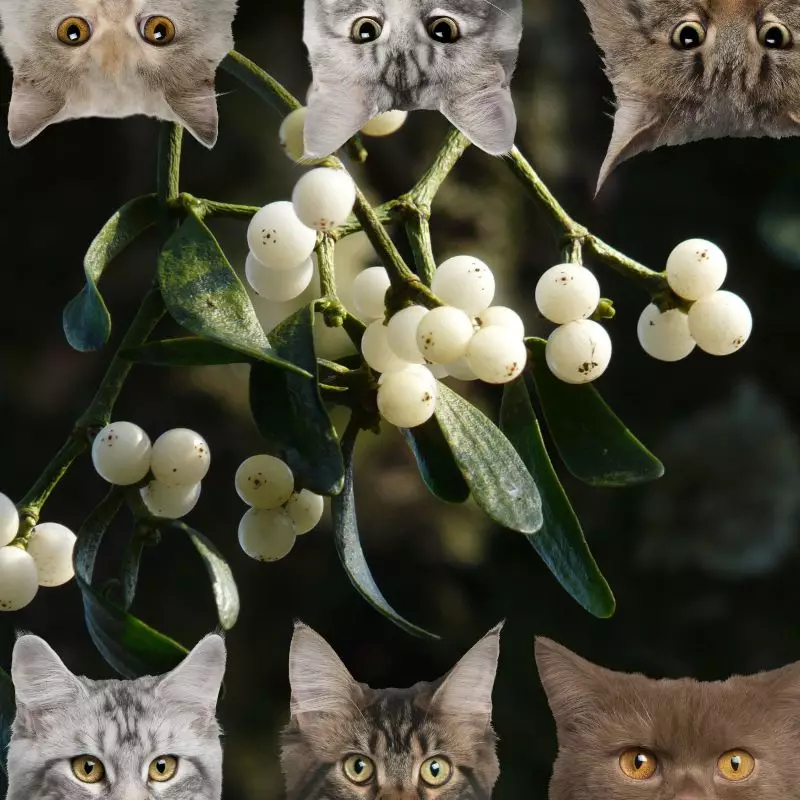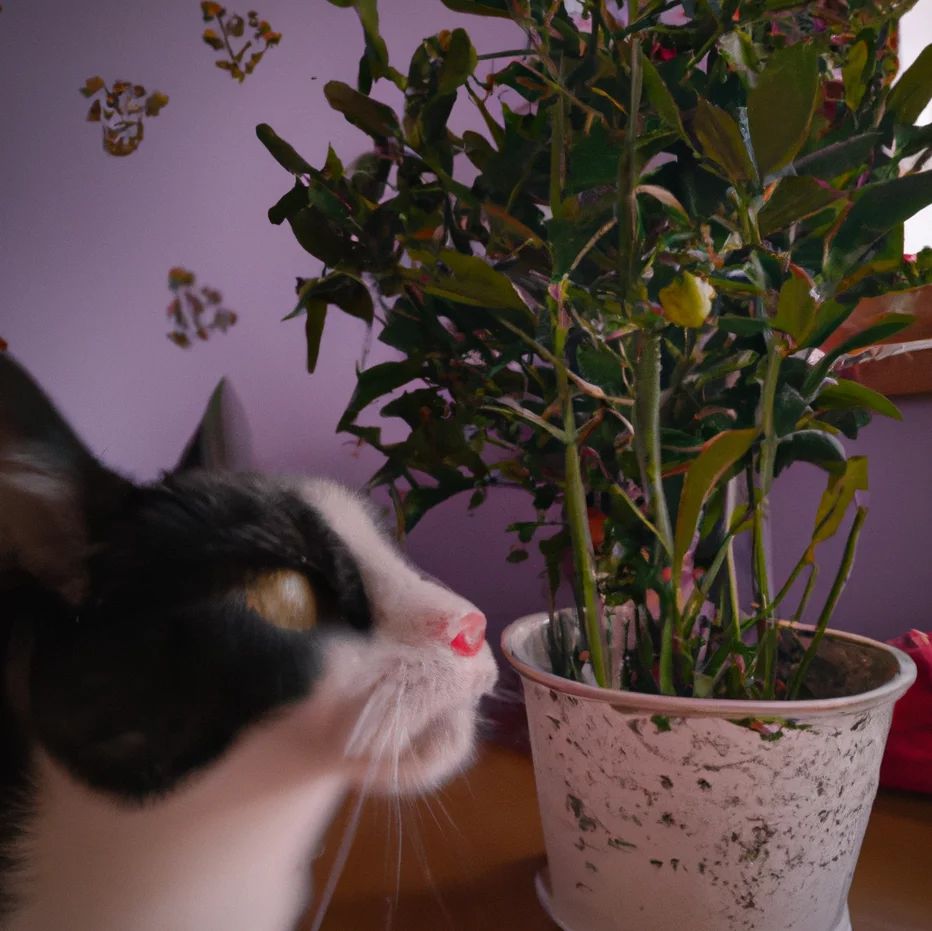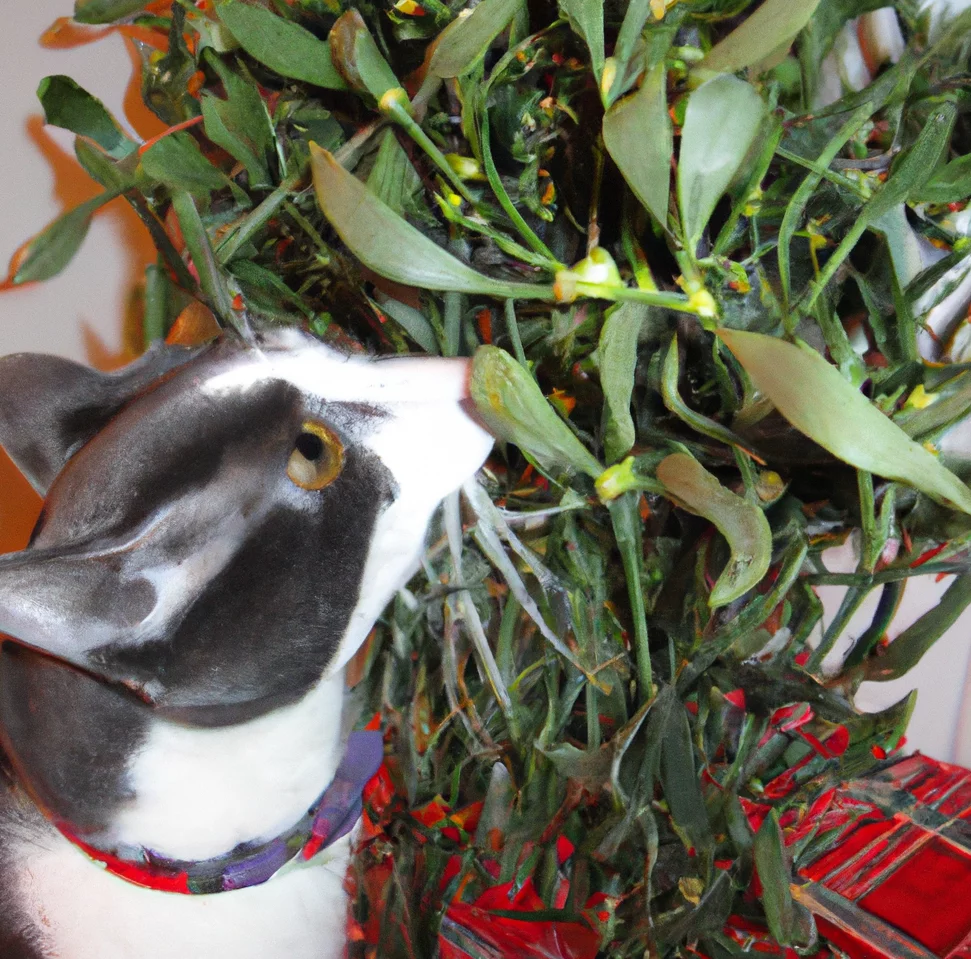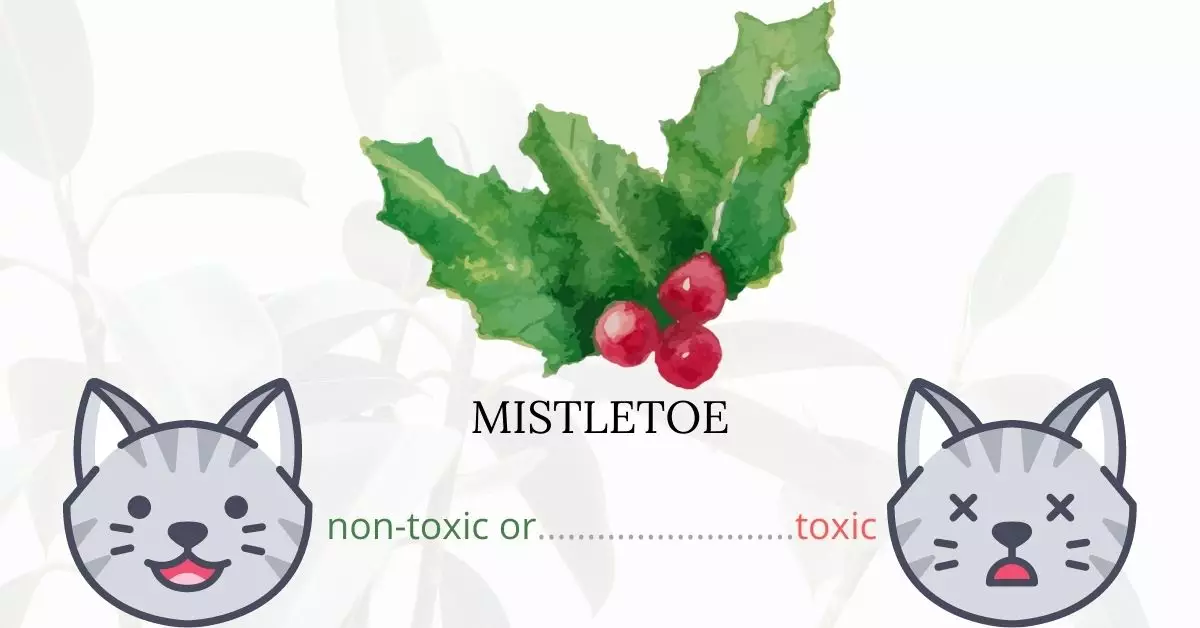Yes, mistletoe is toxic to cats.
This article has been meticulously crafted in collaboration with a team of experienced DVMs (doctors of veterinary medicine). Their invaluable insights and expertise have enabled us to deliver accurate and up-to-date information about the potential risks various plants, like mistletoe, pose to felines. Additionally, our research extends to high-authority websites such as ASPCA and PetMD to ensure a comprehensive understanding.
Mistletoe, commonly recognized as a festive Christmas decoration associated with the tradition of kissing underneath it, contains toxins such as phoratoxin, gamma-aminobutyric acid, phenols, phenethylamines, phenylpropanoids, polysaccharides, and flavonoids. These substances can induce gastrointestinal disorders in cats, and in rarer instances, may lead to hypotension and bradycardia.
Clinical Signs of Mistletoe Poisoning in Cats

If your cat comes into contact with, inhales, or consumes the mistletoe plant, various clinical signs can develop due to the toxins present in the plant. Recognizing and understanding these symptoms is crucial, as timely intervention can prevent further complications. Below are the clinical signs of mistletoe poisoning in cats and explanations for each:
- Vomiting: This occurs due to the irritation of the cat’s stomach and intestines caused by the plant’s toxins. It’s the body’s immediate response to expel the poisonous substances.
- Diarrhea: The toxins disrupt the normal functioning of the digestive tract, leading to an upset stomach and loose stools.
- Abdominal Pain: Ingestion of the mistletoe can cause inflammation of the cat’s gastrointestinal tract, resulting in noticeable discomfort and pain.
- Excessive Drooling: The mistletoe’s irritants can lead to increased salivation as the body tries to rid itself of the harmful compounds.
- Drowsiness: Some toxins in mistletoe affect the central nervous system, making the cat lethargic and less responsive.
- Weakness: As the toxins circulate in the bloodstream, they can affect muscle function and overall energy levels, leading to general weakness.
- Slow Heart Rate or Bradycardia: The presence of phoratoxin can affect the heart’s regular rhythm, causing it to beat slower than usual.
- Low Blood Pressure: Toxins like gamma-aminobutyric acid in mistletoe can affect the cardiovascular system, resulting in a drop in blood pressure.
- Dyspnea: Difficulty in breathing may arise due to the impact of the toxins on the respiratory system or as a secondary effect from other symptoms.
- Seizures: If the toxins impact the brain, it can lead to abnormal neural activity resulting in seizures.
- Collapse: A culmination of the above symptoms or severe toxicity can lead the cat to collapse or become unresponsive.
Should you observe any of these signs in your feline, seek guidance from your veterinarian or a local poison control center immediately. The quicker you act, the better the chances of recovery for your pet.
First Aid and Treatment of Mint Poisoning in Cats

Because there is no specific treatment for mistletoe poisoning in cats, treatment is usually focused on managing symptoms as they emerge and maintaining the cat’s important functions. The better the prognosis for the cat, the sooner treatment can begin.
The veterinarian may give the cat activated charcoal to absorb the different poisons generated by the mistletoe into the stomach and digestive tract. Once consumed, toxins are confined and can safely pass through the cat’s system.
The cat may also be given medications to help with gastrointestinal distress or to raise blood pressure. Supportive care, such as oxygen supplementation, may be necessary in extreme circumstances to help a cat whose breathing is compromised. To keep the cat from becoming very dehydrated, intravenous fluids may be administered.
Recovery from Mistletoe Poisoning in Cats

The symptoms of mistletoe poisoning can persist for up to three days. Overall, the outlook of recovery is highly dependent on the quantity of the mistletoe that was eaten and how prompt the afflicted cat was treated. If the cat received appropriate therapy promptly, fatality is improbable.
Prevention of Mistletoe Poisoning in Cats
Keep mistletoes in areas that are not accessible to your cats. Instead of actual mistletoe clippings, there are various faux alternatives that are safe for pets and can be used for décor. If you live in a community where mistletoe grows wild, keeping your cats engaged and occupied indoors reduces the risk of exposure to this and other harmful plants.
If you love plants but have cats at home, check out these lists:





